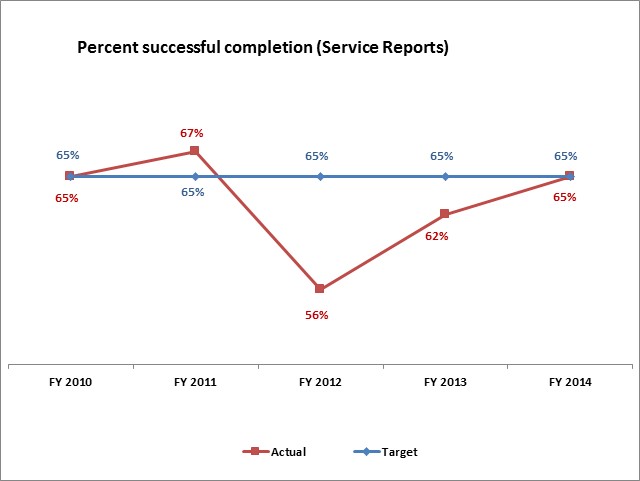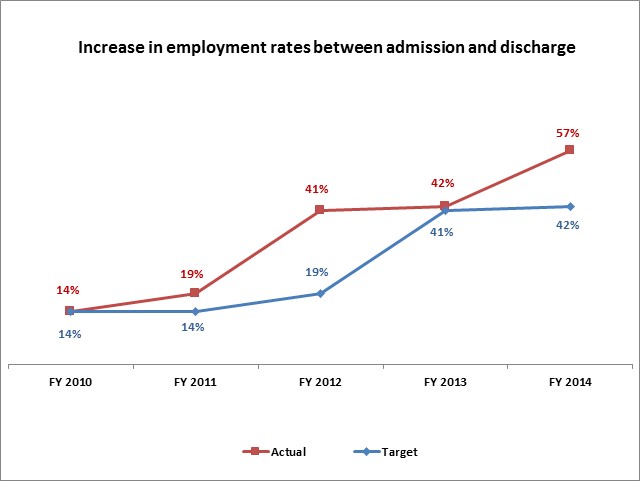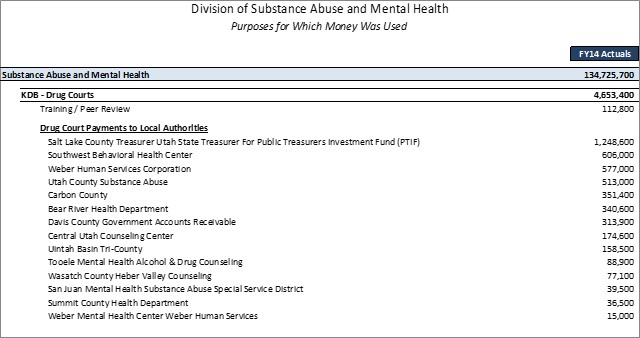Drug Courts is a judicial process that offers nonviolent drug abusing offenders intensive court-supervised drug treatment as an alternative to jail or prison. The local area substance abuse authorities and private contractors provide treatment services.


Regarding the positive trend greater than 5% in the increase in the employment rate from the Drug Court program performance measures, the agency states, "The steady increase in employment rates in Drug Court is likely due to the increased emphasis by Drug Court Teams on employment in recent years, and the fact that more individuals are being admitted to drug courts directly from jail, which means they are more likely to be unemployed at admission."
Utah's first drug court was started in 1996 in Salt Lake County with funds from the U.S. Department of Justice, Salt Lake County, and other sources. Currently, 50 of the 56 drug courts operating in the state receive funding from the Department of Human Services.
Each drug court has its own eligibility criteria. However, most look at both a potential participant's legal history as well as the clinical severity of the addiction. In most drug courts, offenders enter a guilty plea which is then held in abeyance for the duration of the program. The charges are then dismissed upon successful completion of the program.
Drug court participants are enrolled in the program for approximately 73 weeks. Treatment counselors develop individualized treatment plans. The participants are randomly tested for drug use from one to four times a week. The drug court judge reviews compliance with the treatment plan during weekly court reviews. In most programs, participants must be clean for at least six months to graduate. Failure to comply with any element of the program or having a positive drug test may result in immediate court action such as being taken to jail. Compliance and progress in the program are rewarded with praise from the court and a gradual decrease in supervision.
Drug courts also receive funding directly from federal and local agencies.
COBI contains unaudited data as presented to the Legislature by state agencies at the time of publication. For audited financial data see the State of Utah's Comprehensive Annual Financial Reports.
